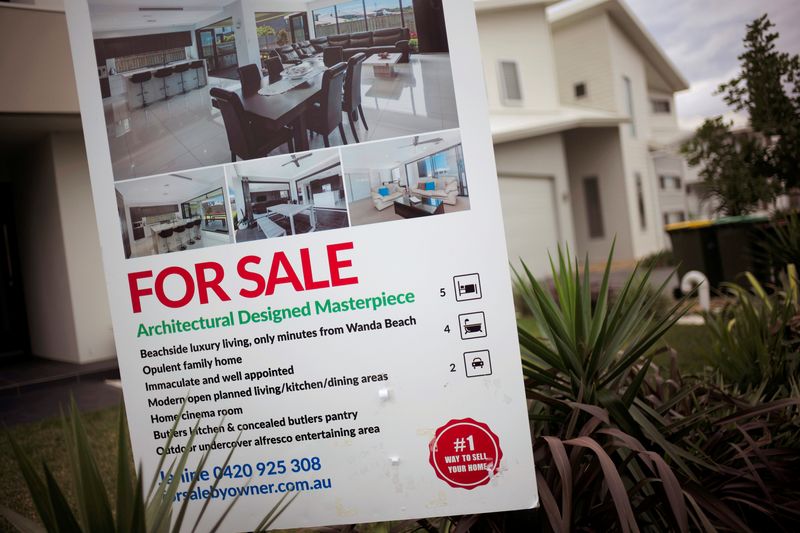SYDNEY (Reuters) - A measure of Australian consumer sentiment slid for a seventh straight month to match pandemic lows in June amid an outsized rise in interest rates and surging inflation.
The Westpac-Melbourne Institute index of consumer sentiment released on Wednesday slumped 4.5% in June from May, when it dropped 5.6%. The index was down 19.5% from June last year at 86.4, meaning pessimists far outnumbered optimists.
A separate weekly survey from ANZ showed a steep drop of 7.6% in its confidence index to the lowest since the start of the pandemic. Indeed, outside of the pandemic the index was the lowest since the recession of the early 1990s.
The drop followed the Reserve Bank of Australia's (RBA) decision to raise interest rates by a surprisingly large 50 basis points to 0.85%, warning that more would be needed to restrain runaway inflation.
"Our survey detail shows a clear picture of a slump in sentiment being driven by rising inflation; an associated lift in interest rates; and a loss of confidence around the economic outlook, both here and abroad," said Westpac chief economist Bill Evans.
"The RBA needs to normalise policy quickly to begin to address this very disturbing challenge," he added. "Another 50bps in July will be a further decisive step in this process."
The increase in borrowing costs only adds to pressures from rising petrol prices, housing and food, and saw the survey's measure of family finances over the next 12 months dive 7.6%.
Finances compared with a year ago also slid 7.0%, while a measure of whether it was a good time to buy a major household item fell 3.3%.

Consumers were equally downbeat on the economic outlook for the next 12 months which dropped 7.5%, though the outlook for the next five years actually rose by 2.1%.
Consumers were still relatively upbeat about their own employment prospects, but much gloomier on housing as prices turn down in Sydney and Melbourne.